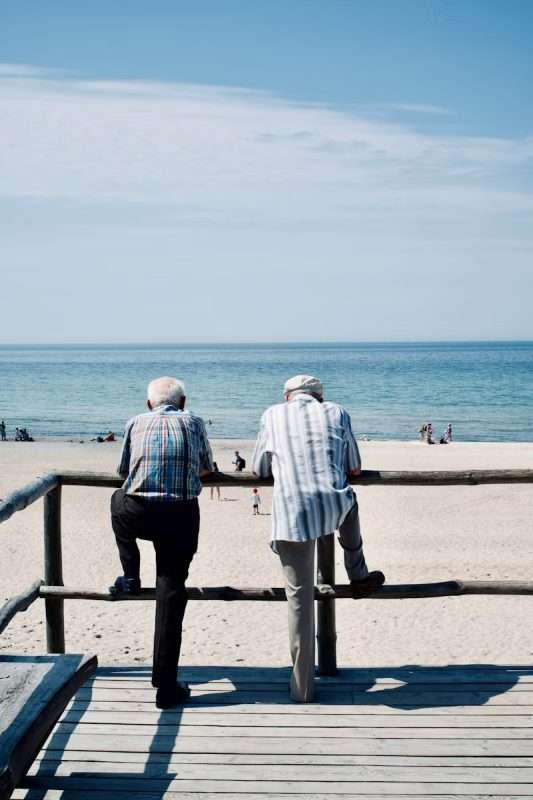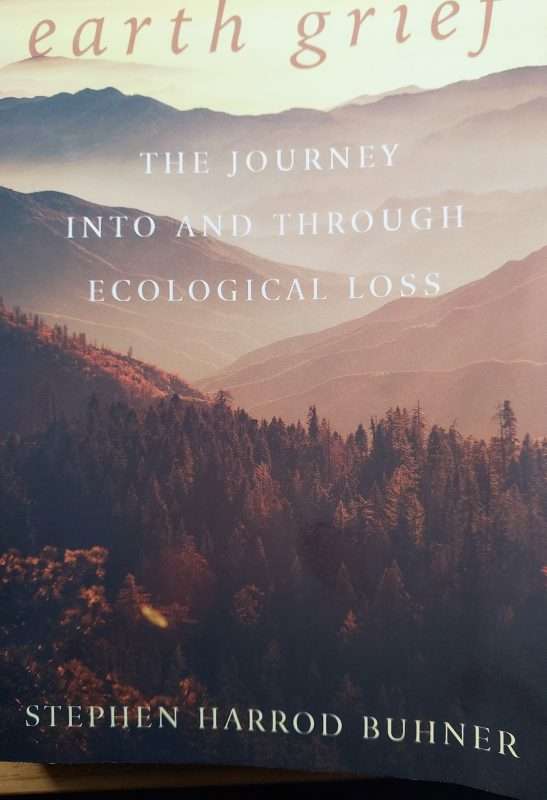I am writing in the aftermath of a wet and windy weekend. As the football season draws to a close, those of us who hold out hope to see the boys in purple reign in our lifetime breathed sighs of relief as the Dockers finally caught an updraught and sailed home yet again. Another emotional rollercoaster, so familiar to team supporters throughout the sporting globe.
The churn of highs and lows set me thinking about cultural dichotomies around emotional expression that permeate aspects of the Australian psyche. How we deal with the swirling tide of feelings that arise when we are thrilled, threatened, or hurting, is a study in diversity. Our rituals, or lack of them, contain a rainbow of difference (and a recipe for misunderstanding). I can observe but not speak for others whose cultural background is far removed from mine. Only for my mob – that cohort embodying a predominantly Anglo-Celtic heritage, replete with British reserve, stiff upper lips, and a Python-esque cartography of ‘don’t mention the war’. An ingrained modus operandi birthing a psychological impasse. Under the dubious banner of ‘good manners’, we were not brought up to talk about our feelings, either within the family or in public. Much was kept under the lid – repressed, suppressed, avoided, or denied. Except, of course, at raucous arenas such as a football match or a rock concert. There, under the cover of noise and lights, we could, at least to some extent, let it all hang out.
Why do I mention this?
A few reasons, the first of which relates to recent conversations with good friends. We shoot the Freo breeze over caffeine and patisseries, and follow-up with email exchanges around topics of interest, not necessarily mutual. Sometimes our views align, while some of us have more to say than others. Yet we all share concerns of a macro nature – the parlous state of the world – and of a micro nature, namely, our own lives and the lives of those dear to us. As we are of a certain age, mortality is not as distant as it once was, and we ponder how our remaining years might play out.

Within your own friendship groups, readers may find some resonance. Beyond the camaraderie, the banter, and the gossip, there can be scope for serious stuff. But my experience suggests this can be fraught. We may exude ease and confidence when talking about subjects ‘out there’ – such as getting stuck into the likes of the Trumpster or the government or our local council – yet we can be totally unenthused about turning the dial inwards, and examining our own tendencies, beliefs, and aspects of our conditioning that determine how we think and how we relate to others, as well as to ourselves.
Unless we meander into therapeutic or spiritual terrain, rarely do we find encouragement to reflect in this way. Tangible benefits may not be obvious. And any inclination may be stillborn if we are averse to what my late father dismissed as ‘navel-gazing’. Moreover, an underlying fear of being vulnerable is a potent deterrent, particularly if you happen to be a vintage Australian male – a strange species of whom someone rather unkindly said: ‘They wouldn’t know an emotion if they fell over one’.
‘He’s not beating that drum again’, the lads will groan. Bear with me, the sound may be sweeter. Emotions, usually described as physiological sensations triggered by external stimuli, are instinctual and universal. They are akin to raw data – whereas what we call ‘feelings’ are the descriptions or labels we give to that data. How we interpret the input of similar data can vary from person to person. In normal conversation we refer more to feelings than emotions, although the mere mention of this innocent F-word can throw people into confusion. I remember my brief career as a relationship counsellor. If you asked a bloke what he was feeling or what he felt when his partner challenged him, you often got a blank look or a muttered ‘dunno’. Nonetheless, times are a’changing and old ways may not be applicable to younger men who are less frightened of ‘emotional displays’ and for whom patriarchy is not seen as a birthright. But there are germs of truth around enduring male resistance in the uncertain realm of emotions. Push-back that invites recognition most of us blokes have a lot of work to do.
Not that this will be readily apparent to everyone. When I attempt to be clear-eyed about societal malaise, it can leave me marinating in sadness and anger. I become miserable and pessimistic, despite any mental and experiential understanding of the ancient Persian adage relating to impermanence – that ‘this too will pass’. Yes, I know the feelings will pass and I may wind up reinvigorated and even inspired. And from that space can arise action, creativity, a sense of contribution, along with gratitude and a vestige of serenity. For the most part, that’s what tends to happen in practice.
Yet it’s problematic for some folk when you articulate feelings that are construed as negative. They can be discomfited and not know how to respond. Others will attempt to talk you out of it, cajoling you to look on the bright side, or to do something, or you are urged to remember that every time you wake up in the morning it’s a ‘brand new day’.
Yes, agreed. Practical measures and well-meant advice. Such responses, however, can mask an unwillingness and inability to deal with the grief that underscores the sadness and anger. For it is personal and collective grief – and the way in which we embrace or dismiss it – that plays a crucial role in our lives.
Think about this. In times past, what was said and done in your family when somebody died? Was the conversation muted, any ceremonial undertaking merely practical and perfunctory, and the aftermath more to do with forgetting than remembering? Or were rituals enacted that enabled grief to be expressed and processed?
In my family, in the days when most women did not even attend funerals, grieving was a silent, solitary affair. I remember how shocked I was, as a teenage boy, when I encountered my grandmother crying after the sudden death of her younger brother. No adult cried in those days, certainly not in the presence of children.
Extrapolate from that kind of early experience. Whereas I grew up in a privileged society, where dreams of a brave new world, awash with prosperity, fairness and justice, coexisted among young and old, if we fast forward to the present, those dreams have largely evaporated. In this not-so-brave new world, dreams are more of an extravagance than an expression of our heart’s desire. Yet intuitively we know that we must dare to dream if we are not to succumb to inertia, fatalism or despair. How we position that intent is important. I would argue it must be grounded in facing reality and not in fantasy; there must be a container for our sorrows as well as our joy; a place for our heart as well as our head.

In The Wild Edge of Sorrow, psychotherapist author, Francis Weller, explores the nature of grieving:
‘For more than 30 years I have worked with individuals in my practice as a psychotherapist and in workshop settings. The one emotion that has touched everyone is grief. It may be the grief we finally allow ourselves to feel for the life we did not choose. It may be our sorrowful losses that happened early in our life, losses that we were unprepared to grieve. It may be for relationships that fell apart, friendships that have vanished, times of violation and abandonment, or for the suffering we feel for our ravished Earth.’
As Weller outlines, grief can be intensely personal or can be shared grief, within a family, a society, or on a global scale. He talks about factors that ‘obscure the free and unfettered expression of grief’, including for many of us a cultural conditioning that ‘predisposes us to maintain a lock on our grief, shackling it in the smallest concealed place in our soul.’ This, Weller describes, as our private pain, a legacy of rugged individualism.
Grief does not discriminate. And being highly educated along rational-materialist lines can be more of a curse than a blessing. The late Stephen Harrod Buhner in his book, Earth Grief, draws from a lifetime of study and training in various disciplines to focus upon what he sees as lacking:
‘One of the deep-seated and very dangerous problems we face is the tendency for rationalists (of whatever sort) to leave out love – and the empathy and caring that comes with it. And a science without love and empathy, a technology without love and empathy, a way of thinking and being without love and empathy… well, we see the results of that around us every day of our lives.’
That he is confident enough to use the word ‘love’ in this context is significant in itself. Buhner goes to the core of what it is to be human, and he names it.

Neither author suggests that we wallow in sorrow – far from it. Weller advocates we ‘move through these experiences with true presence and conscious awareness’ for to do otherwise ‘condemns us to a life shadowed by grief’.
Buhner also spells out the issues and our choices: ‘In fact, the tendency to suppress or avoid rather than deal with the underlying condition that our pain and grief are a signal about – that is, the orientation of mind out of which the tendency to suppress or avoid comes – is itself part of the problem. It is embedded within what you might call a particular climate of mind. And that climate of mind is entangled far more than most people realise with the climate problems we face. What is true is that it is the climate of mind in here, inside us, that has given rise to the climate problems out there. Maybe it’s time to go a bit deeper, to do something else. Perhaps to do the opposite of what we are most often wanting or being urged to do.’
Yes – but. What does this actually mean – a ‘climate of mind’? How do we ‘go deeper’, whatever that entails? I can imagine a furrowing of brows among readers. A grimace here and there. Too much fluffy conceptualising. Others may recognise the journey – a journey involving curiosity and a willingness to find peace with powerful emotions and not try to push them away. Intention is important, along with patience and commitment. The journey tends to be a marathon rather than a sprint. Weller speaks of ‘an ongoing conversation that accompanies us through life’.
While people like Weller and Buhner address these issues eloquently and compellingly, there is widespread reluctance among most of us to do the hard yards. Even to have a tentative conversation can be a minefield. How we listen, what we hear, what we screen out, and how we fall back on assumptions and rock-solid beliefs can be anathema to honesty, receptivity, and vulnerability. Too often, I find, an unexpressed but apparent discomfort swiftly transmutes into shifting the goalposts towards positive territory without giving sufficient space and time (and acknowledgement) to so-called negative emotions. As an example, a friend recently pointed out there are studies in neuroscience that suggest ‘positive emotions’ enable us to be at our best in a number of scenarios. I have little doubt that happiness, joy, serenity and so forth are pointers towards health and well-being. But I think it’s a mistake to separate emotions into positive and negative in the first place. The wide range of feeling states and affects that we experience are integral to our human-ness. Psychological health and maturity are bound up in marrying both sunshine and shadow. Welcoming and exploring the full gamut of our emotional world is crucial if we are to embark on a quest, as Socrates suggests, to ‘know thyself’. Otherwise, our coin is one-sided, our glass half-full.
Returning to my own family, my dear mum would sit at the breakfast table each morning with The West Australian in front of her. Every now and then, a deep sigh would emerge, followed by: ‘What’s the world coming to?’ Now mum, who had a wicked sense of humour, was well loved within the family and beyond. She had lived through Depressions and wars yet the present, in some ways, always seemed worse than the past. Deep down, I suspect, she despaired that humanity was something of a busted flush – and who’s to say she was wrong?
My parents were products of their times. They would be bemused by their eldest, argumentative, armchair-opinionated son writing about emotions. My guess is that many readers of this column also grew up in households where feelings were kept in check, let alone considered worthy of dinner table discussion. And nowhere was there talk of psychologists or counsellors. Any advice of a personal nature came from a perspiring general practitioner, or, in churchgoing families, from the local parson. Emotional maturity was very much the luck of the draw rather than being learnt and earned.
Times have changed – or have they? I wonder. Somehow, the notion of emotion is shrouded in mystique, acceptable in movie cinemas, music venues, and sporting arenas but languishing underground in ordinary discourse, tainted by an intellectual preference for head over heart or thoughts over feelings. Not only, I believe, is this misguided but it creates a schism within us – a separation that dehumanises our humanness. (Neither does it help to privilege feelings over thoughts, an unfortunate spin-off from some spiritual circles as well as within the lollipop language of the New Age.)
A magic potion to remedy these disturbing notions? No way, José. There is no magic potion but if we see merit in addressing fears and preconceptions and we value the spectrum of opportunity that life presents, we may be induced to pause, reconsider, and reorient our attention. Much is at stake.
Meanwhile – go Dockers!
By Bruce Menzies. Based in Fremantle, most of the time, Bruce Menzies is the author of three novels, a family history, and a recent memoir. Details at BruceJamesMenzies.com If you’d like to read more of Bruce Menzies’ work on Fremantle Shipping News or listen to a fascinating podcast interview with Bruce, look here.
~ If you’d like to COMMENT on this or any of our stories, don’t hesitate to email our Editor.
~ WHILE YOU’RE HERE –
PLEASE HELP US TO GROW FREMANTLE SHIPPING NEWS
FSN is a reader-supported, volunteer-assisted online magazine all about Fremantle. Thanks for helping to keep FSN keeping on!
~ Don’t forget to SUBSCRIBE to receive your free copy of The Weekly Edition of the Shipping News each Friday!







